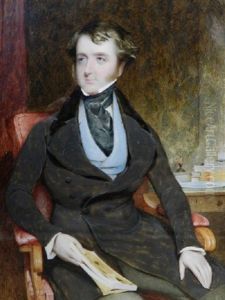William Booth Paintings
William Booth was not an artist in the traditional sense of painters or sculptors, but he was indeed a visionary who painted the landscape of social reform and religious evangelism in the 19th and early 20th centuries. Born on April 10, 1829, in Nottingham, England, Booth embarked on a mission that would forever change the fabric of society through the establishment of The Salvation Army, an organization that combined militant discipline with Christian philanthropy to address the dire needs of the impoverished and the lost.
Booth's early life was marked by hardship and poverty, which deeply influenced his later work and motivations. After converting to Methodism as a teenager, he became a fervent evangelist, preaching the gospel and reaching out to the marginalized segments of society. His marriage to Catherine Mumford in 1855 would prove to be a significant partnership in the formation and operation of The Salvation Army. Catherine, equally passionate about social issues and theology, played a crucial role in shaping the organization's doctrines and outreach strategies.
In 1865, William Booth founded The Christian Mission in London's East End, initially focusing on evangelism among the poor and destitute. However, he soon realized that to effectively minister to their spiritual needs, he also needed to address their physical and social needs. This holistic approach to salvation and reform led to the transformation of The Christian Mission into The Salvation Army in 1878. Under Booth's leadership, The Salvation Army adopted a military structure, with Booth himself being known as the General. The organization rapidly expanded beyond England, establishing a presence in numerous countries and becoming one of the largest distributors of humanitarian aid.
Booth's innovative approach to social reform and religion, including the establishment of food depots, shelters for the homeless, and rehabilitation programs for alcoholics and prostitutes, was revolutionary. His vision extended to advocating for women's rights and the abolition of child labor and trafficking. Despite facing opposition and sometimes violent persecution, Booth remained committed to his cause until his death on August 20, 1912.
William Booth's legacy is a testament to his indomitable spirit and compassion. The Salvation Army continues to operate worldwide, adhering to Booth's principles of faith-based social service. His work has left an indelible mark on society, demonstrating the power of faith in action to effect tangible change and bring hope to the most disadvantaged.


